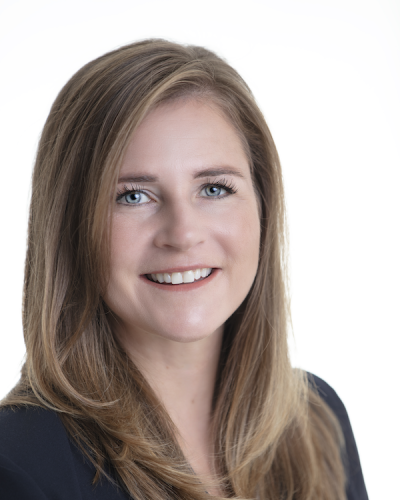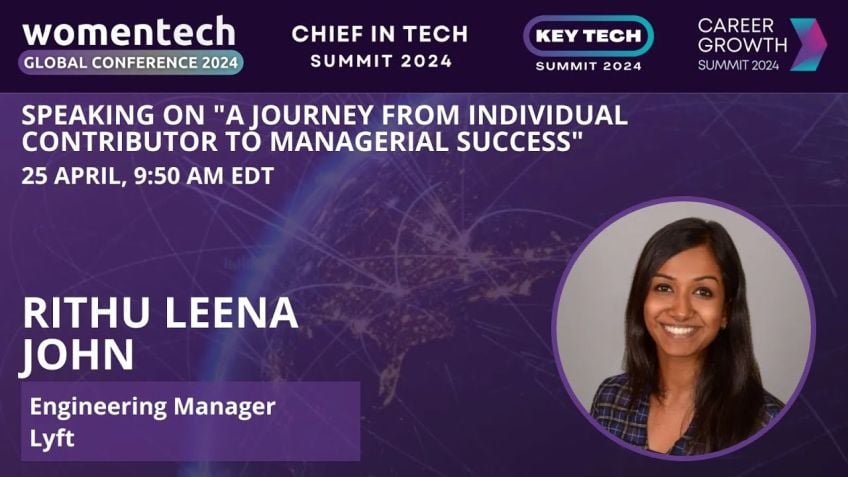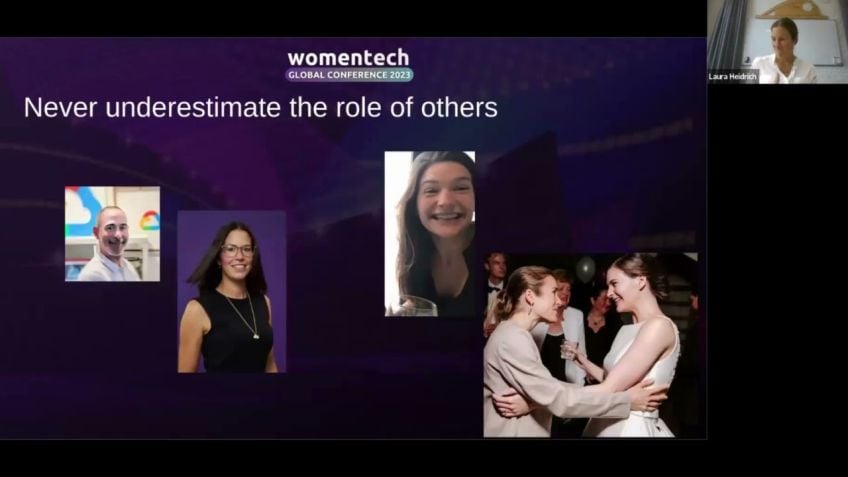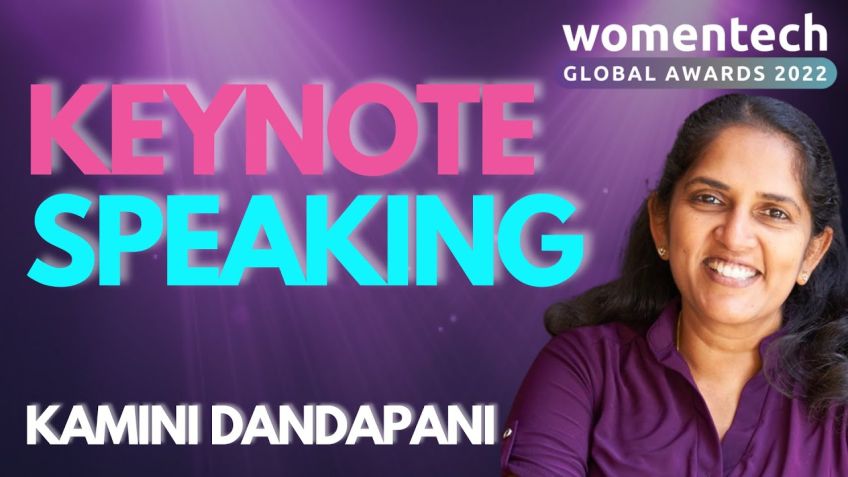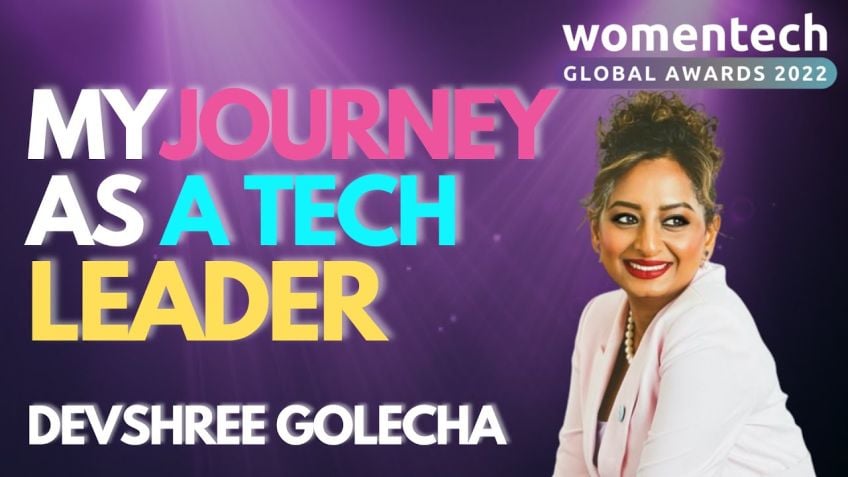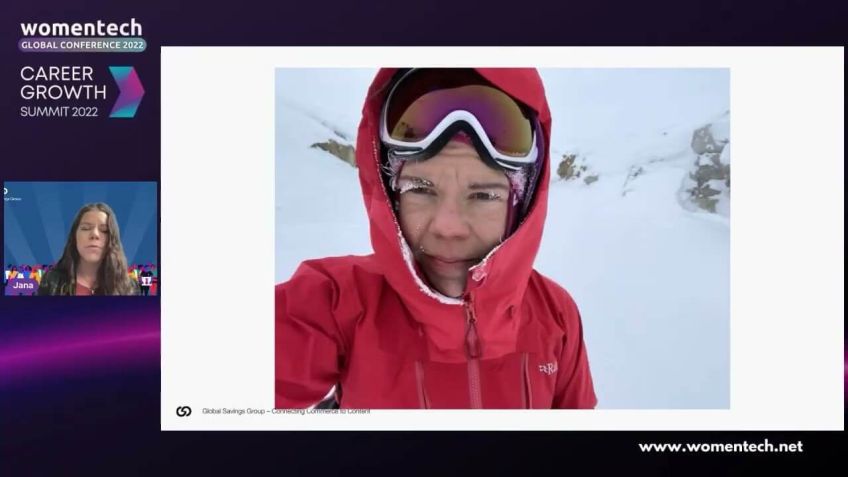My Journey to the C-Suite, ask me anything
Rebecca Gasser
Chief Information OfficerRebecca Gasser's Journey to the C-Suite
It is always inspiring to hear the professional journey of distinguished individuals like Rebecca Gasser, the Chief Information Officer at the Comp Health Group, who shared her story at a recent conference. This article elaborates on Rebecca's enlightening talk on her journey to the executive suite after starting her career as a low-level engineer.
About Rebecca Gasser
Rebecca has been a part of the technology industry for 25 years, rising the ranks from a low-level engineer to the CIO of the largest healthcare marketing and communications group. During her early days, she was a consultant at Laxmi line before transitioning into a full-time role at the company, where she assumed various positions with increasing responsibility.
She had always been eager to learn and improve, demonstrated by her pursuit of a dual Master's degree in Business Management and Information Science. She also acquired certifications such as Idol Certified and MCSE, amongst others, to strengthen her foothold in technology and business.
Growth, Priorities, and Partnerships
Balancing a growing career with personal achievements like marriage and parenthood has been a notable aspect of Rebecca's story. She and her husband have always prioritized her career and created a lifestyle that accommodated her needs. This understanding and support, she believes, have been critical to her success.
One significant takeaway here is that Rebecca's pursuit of her career didn't mean she missed out on crucial moments in her children's lives. The importance of keeping a balance between personal life and career is something she keenly emphasizes.
Change, Growth and New Endeavours
Rebecca's long tenure of over 20 years at GlaxoSmithKline came to end with a shift in the company's leadership. The presence of external talent made her question her growth trajectory, prompting her decision to venture out and explore opportunities beyond GlaxoSmithKline.
Resume Makeover
One key strategy that helped Rebecca during this transition was having a professional resume and LinkedIn writer to effectively present her accomplishments. The resume writer's efforts were instrumental in highlighting Rebecca's competencies in a way that she perhaps could not have done herself. This self-marketing strategy was crucial in helping her secure interviews as she sought out her next role.
Exploring New Opportunities
Rebecca moved on to join Ferrandino, a mid-sized facility services and construction company, as their Vice President of Technology. The move allowed her to gain a broader view of managing a full technology organization, an experience she hadn't had in a larger enterprise like GlaxoSmithKline.
She later returned to healthcare by joining Omnicom Health Group as their CIO, highlighting the fact that varying the size and scope of the organizations one works for can be beneficial for gaining a more comprehensive understanding of different operational frameworks.
Tips for Aspiring Executives
- Marketing yourself is crucial: Rebecca's well-crafted resume and active LinkedIn profile played a pivotal role in attracting potential employers and helped position her as a top-class candidate.
- Be prepared to invest: If you are seeking a significant upward movement or transition in your career, consider budgeting for professional resume and LinkedIn services.
- Transparency and Vulnerability are vital: Women can leverage their inherent propensity for transparency and vulnerability to build enduring relationships and create a supportive team environment, leading to collective success.
At the end of the day, Rebecca's story does not just provide a valuable roadmap for others aspiring to climb the corporate ladder, but also reflective insight into what makes a truly successful and balanced professional journey.
Video Transcription
OK, I'm, I'm gonna get started. It's nice to um see everybody here. Um Well, I can't see you but I can see you on the attendee list. We only have 20 minutes and um I really appreciate you coming to my talk. I'm Rebecca Gasser.I am the chief information officer at the Comp Health Group. We are the largest health care marketing and communications group um serving, you know, life sciences and I've spent over 25 years growing my career in technology and I'm incredibly excited to be here with you all today to talk about my journey to the C suite. I'm gonna give you a brief background on my career, very brief and then I wanna open it up and you can literally ask me anything. Um We only have 20 minutes. So, uh you know, as as I'm talking, if you have questions, if you could put them into the Q and A and not the chat because I'm gonna be, it's gonna be hard enough for me to keep an eye on what's going on. So if we can put them into the Q and A, I'd really appreciate that. So let me get started on a little bit about myself and, and my journey. So um I started in technology as a low level engineer when I was 22.
And uh I started Laxmi line. I first started as a consultant and then was quickly converted to a full time employee with them. And I had a variety of roles. Uh First, very technical, I was a desktop engineer and application integrator. And then I made a conscious decision that I wanted to be a leader in the company. And I made that decision known to my, my leadership team, my management in um hopes that they would help me start to pivot my career and give me those opportunities for leadership. So um while I was doing that right? So I was young and I was, I was uh and uh absorbing everything that I possibly could. I went to uh school for business management for my undergraduate. And I was, I was really interested in learning as much as I could. I went and got 22 dual master's degrees or a dual master's degree um in business management. And then one in a master's of information science, I realized I needed to kind of legitimate legitimize my in technology. And so I wanted to seek a higher degree in that. And then I also, whenever an opportunity was given to me, I went after industry certification. So I was Idol Certified. I was M CS E certified. I six Sigma. I got my black belt in that any opportunity my company would give me to learn and legitimize myself and make myself marketable. I went for that.
So while I was growing my career, I got married, uh my husband's name is Don and Tim. And I have always been on the same page with my career. And I think that's one of the, the key things to my success uh getting to where I am today. Um Early on, we talked about what my goals for my career was and, and to be a senior leader and we made a conscious decision together to prioritize my career. Now he has a full time job. He works for SAP, he does very well. But when it comes to allowing me the space to travel and, and be where I need to be, we've always prioritized my career over his. And I really think that this was, this made us successful. There was never a competition between the two of us. Um We built a house, we had two kids while we were doing this um during my pregnancies, you know, I sensed a little bit of nervousness from my manager around whether or not I would come back whether or not I wanted to continue to work hard and pursue my career. And I was very transparent with him in both pregnancies. I was always talking very openly about I will come back. I'm going to take this time off, but I will absolutely be back and be back full time. I had care set up. I have everything set. So, um, there is never a worry about whether or not I was still continuing to, um, wanted to still continue to advance.
Uh, there were times where I certainly took a press the, the brakes a little bit on my career where I was, you know, when my kids were younger, I didn't want to travel as much and I wanted roles that allowed me to be at home more. But once they got a little bit older, I started to put the gas back on. Um, my daughters, I have two, they're both now. Um One is 15 and one is 12, almost 13. They're both aspiring ballerinas and non traditionally school. So they take a lot of work. Um, they dance full time while being educated and um we have a good division of parenting in our house. My husband, I have a really great balance on getting them where they need to be and supporting them when they need to be supported. Never once in my household was the words uttered that dawn is babysitting the kids. Um He was always an equal partner, an equal parent. Uh He was never watching the kids, they were his child, Children as well. Um But even as I was growing my career, even, even as I started to get more senior roles, I never missed any of their big moments. And I think that's really, really important for balancing and not having regrets your career grows and advancement and the people in the lives that love and need you and want you there. Um I always ensure that my calendar is up to date.
You know, as soon as I know they have a big thing coming up a uh dance recital or a school project that they're going to be doing and presenting it. I have it posted not only in my personal calendar but my work calendar to make sure I block out that time and I'm available for them. So I can't remember ever missing a big moment and I've never heard from them any kind of guilt around me not being home. So I want to get back to my career. Um I worked at GlaxoSmithKline for over 20 years and I was lucky enough to experience a number of technology roles that really allowed me to expand my skill set and grow my career. I um I was always conscious of trying out different things, process management, project management, service, management. And it really gave me a well rounded view of how a technology organization can operate. Um I was incredibly lucky to start my career there. Um But as I was, uh you know, over 20 years there, uh as my tenure was coming up to an end, uh we had a change in leadership there.
There was a new CEO that brought in a ton of external talent and that external talent looked at people who had long tenures and thought, what do they know? They've only been in this one company? And I started to hear them on that. Um I started to realize that my ability to grow my career and get that next level at Laxmi fine was minimizing. And I started to reflect on what I wanted to do was I happy enough being there. Uh At that time, I was, I was the head of their product management in their um platforms, organization was I happy enough to stay there and continue a great career, but risk not achieving my goals or did I want to start to look externally for the first time in my career and see what was out there?
And obviously I chose the latter because I'm not at Alexa Smith line anymore. The first thing I did and this was probably one of the keys to my success in finding the next level role is I sought out a professional resume and linkedin writer. Um You will never be able to present yourself in a way that somebody else can look at you and present yourself in. It's, you know, it's interesting if you ever asked to describe yourself and then the next person is asked to describe you as well. They're a lot more gracious, they use a lot more words. Um And it's really you that they're describing, but you would never do that for yourself. So I think that was one of the keys to my success. Um I worked with this resume writer and it was a deep dive into all the things I've done in my career. All the performance reviews, all the references that people have written me, you know, it was soul searching and I provided cio roles that I wanted to get as, as part of, you know, my next opportunity um either CIO or, or head of technology roles and she crafted my resume in a way that was authentically me.
Uh There's not a single eye on my resume or linkedin, but in a way that I would have never presented myself. And as soon as I did that and I started posting that and applying for roles, um I was very quick to get interviews and I found my next opportunity at Ferrandino. And so, um that is a facility services and construction company. Um And I, I moved there to head their uh technology department as their vice president of technology reporting to the president. Um I realized with Glaxo Smith Kline, what I really needed to do was go smaller, you know, you there's many paths to this, but in my head, this is what works for me is I realized that working in a large enterprise, I was very siloed in what I was doing and I needed to get a breath of experience.
Um running a, a full technology organization. So I went to a mid size company and I really got that breath of experience. I learned how to, to build a budget and, and do a PNL. Um I, I, we had a, a cybersecurity crisis my second day in the office. So I, I learned how to work through that and crisis manage and build a team and, and move them forward. And it was a really fantastic opportunity. I stayed with them just over two years. And um I realized that I missed the enterprise environment. I missed working for a large company and I actually miss working in health care. And so um Omnicom came knocking on my door. Um and I will say once you get to these roles, um you've heard about secret roles, it's really hard to find those um top level roles because they're not post, then they're not, they're typically confidential. And so what you have to do is really market yourself. And that's where that linkedin writer um came in handy is you need to market yourself. You need to turn on your linkedin to show that you're open to opportunities and you kind of just have to wait. I mean, you can look and apply, but they're really not out there, you need to wait and recruiters will come if you've done a good job on marketing yourself. So Omnicom came and uh they offered an opportunity for me to be the Cio of Omnicom Health Group.
Omnicom is, itself, is a Fortune 200 holding company and they have a number of divisions, eight in total and they have Cio S running each of those divisions. So I was able to get back to an enterprise organization, get back to health care and uh move my career forward at the same time. And it's, it's been a really exciting journey. So, um I'm gonna, I'm gonna pause there. We have eight minutes left. I can't believe how fast the time is going. And I'm gonna move over to the Q and A if you have questions, um please definitely put them in. If, if uh if I run out of questions, the answer, then I'm gonna tell you about other things in my life that um have impacted me as a leader and, and I'll just keep talking until um until we're done. And after, so the first uh question is how do you approach moving to a new role once you get to a director level? Um do you look to recruit or as open positions, post or cold apply? And as I, as I kind of mentioned, it's all of the above.
So when I was looking to leave Laos SmithKline, I had put myself out there, I turned on my linkedin um to show that I was actively looking but not open, you know, so you don't wanna necessarily show and have that hiring ring around you. So you, you know, unless you are um without a job at the moment. Um So marketing yourself is really important, uh commenting on uh various linkedin posts and just getting a lot of um hits on your profile is really important. But I also um networked. I, I belong to the Society of Information Management, the Philadelphia Chapter. And if you haven't looked at those, um if you're, I think that they're just domestically in the US. But if you haven't looked at what societies are around you or networking groups that has been incredibly helpful for me. Um At Omnicom, the recruiter that recruited me actually sits on the board of the, the, the Sim Philadelphia chapter. So it was a known entity to her and she's the one who contacted me to say, hey, I have this opportunity. So networking is really important and then, you know, multiplying or using your network um or applying the positions open is absolutely an avenue if you see them. Um I'm gonna move on to the next one about finding a good resume, linkedin, writer. The way I approached it was in linkedin.
There is a, a kind of a, now, this was a number of years that I did this, but there was like a request for a project, right? So there's a way to solicit people um to, to come to you. So I had put out a, a post uh a project saying I'm looking for a resume writer and a linkedin writer and, um, uh one, you know, I got a variety of responses and I looked through them all and one stood out to me. Um, I used Bonnie's Career services and she was phenomenal. Um, I loved what she did for me, but that's how I found her. I actually found her through linkedin opening up a project and asking people to, um, post against it. Let's see. I'm gonna move on to the next. How do you organize your main reporter? Weekly Statuses, da Daily Statuses in your new jobs? I'm not sure. I follow that question entirely. Um So maybe if we can get you to, um I'm gonna attempt to answer and if we can get you to uh comment if I didn't or ask another question, that would be fantastic. But um I have daily stand ups with my, with my team, all the heads of the different uh various divisions, right? I have a Dev ops. I have a cybersecurity specialist. I have a product kind of product and we meet daily.
Um It's really fun because we're all uh dispersed from each other. And so it, you know, we spend the first five minutes laughing or joking around or talking about what happened last night or over the weekend and then we talk about what's going on in their world and what blockers they have. I don't do any formal um weekly status reporting or daily status reporting. I always hated when, um, my, my managers asked me to do that. And so, um, I don't force that upon my team as well. I, I'd rather have conversations with them and, and be in the, know, the, the last bit of that is my team only know, um, in, in, in a nonthreatening way. I never wanna be surprised by something. So, if something isn't going well or, uh, something is down, uh, the best thing they can do is reach right out to me and, and talk to me about that because um I wanna be there to support them. I'm never gonna be angry at them. I'm gonna help navigate it. I'm gonna help them communicate it. And, uh, you know, I just don't like to be in a position of, of surprise if somebody senior comes over to me and ask me what's going on.
Um So the next question on here that's at the top is how do you respond to a crisis on your second day not getting in your own way? Um So that was, I mean, that was like a terrifying moment for me. It was really, um it was really interesting. So, um you know, first it started out with a, a system was down and then as the, you know, hour crept through, um it was early in my morning, uh think more things were going down and it, it turned out we had 100 and 80 servers that were encrypted by malware. And uh what I had to quickly do is I get to know my team. Right. So I was just meeting them. They were in my second day but understanding very quickly where our backups, what is our architecture? What is the business critical applications? Um We went into a conference room as a small team, only 12 people. Uh I locked us all in a conference room and um we just started planning and working really hard and we brought in, you know, luckily this company had cybersecurity insurance. We brought in external talent to monitor the perimeter while we were doing our repairs, we brought in additional talent to help subsidize the team. Um And, you know, through it all, um I'm a big believer in trying to have fun no matter what happens in the day.
So through it all, we, uh you know, I made sure they were well fed uh at 6 p.m. every night, the beer fridge opened and we had a beer with dinner and we just worked really hard until we got it through. Um But that was a, an interesting moment and I definitely used the skills that I had obtained through working at Glasses Smith Kline to kind of get through that. And I would just recommend very systemically systematically. Um We are coming up on time with two minutes, but I'm gonna try to keep going. I know we're gonna get cut off um at what level in your career do you recommend finding a resume linkedin writer? I would say at any point that you can afford it and you're looking for that next opportunity. Um If they are expensive, they, they tend to be um anywhere from $1000 up for a good one. So if you can afford it, it's a fantastic investment in yourself. Uh And it's really like if you're trying to make a lateral move, you might not need one. But if you're really trying to move up level, they're fantastic in presenting you in a way that shows that you have the talent to do that. And then the last question we can um probably have time to do is what is the most important skills that help women make it to the sea level. Um I think that one of the most important skills is vulnerability and transparency.
I think we have that over the men and uh by doing that, it makes you an enduring leader. It helps your team rally around you and um it helps you be successful. And, and that's the way that I've always tried to, to live my career. Um You know, we've had a number of stumbling blocks along the way, but I've always been very open about what's going on in my personal life, what's going on in my professional life and helping people understand the journey that we're on. Um So I think that's the most uh important skill. Um at this, we are out of questions and out of time. Thank you everyone for joining me today.

